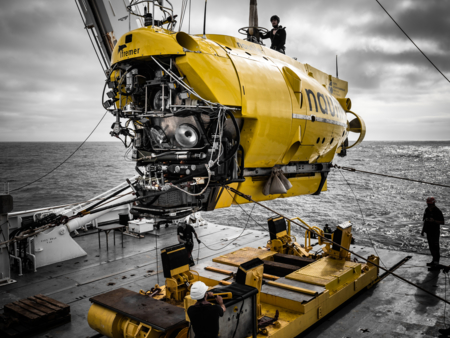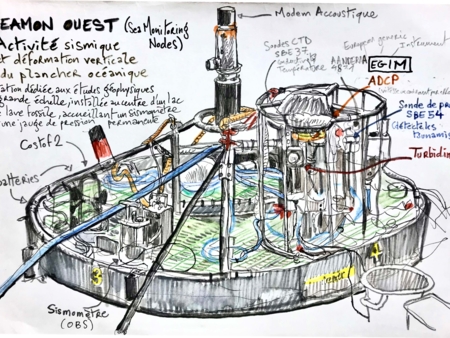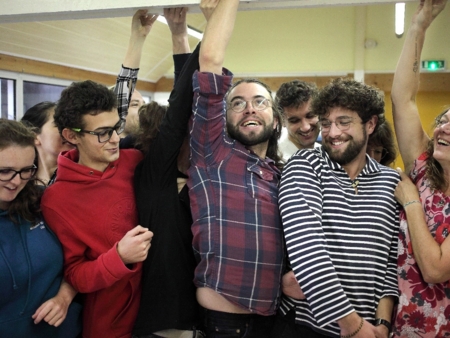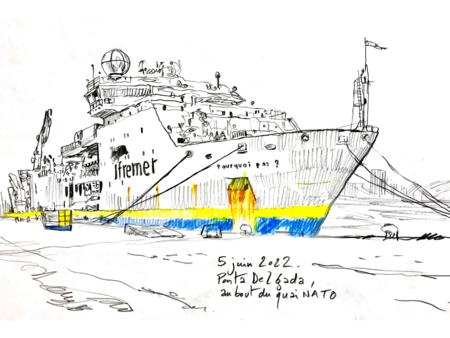A cruise to study the dynamics of deep-sea vent ecosystems
The Momarsat 2022 cruise was held from June 6 to June 27th 2022 on board the French research vessel Pourquoi pas? at the Lucky Strike vent field - northern Mid-Atlantic Ridge - to carry out the yearly maintenance of the EMSO-Azores observatory (https://www.emso-fr.org/fr/EMSO-Azores).
Once again and despite a few Covid cases on board, we ensured the turnover of the full platform and sensor arrays and started another year of data acquisition! The team of 30 scientists from Ifremer, CNRS (IPGP, GET, MIO, LPO), University of Western Brittany (UBO) and University of Azores worked together during the 15 Nautile dives to achieve the substantial sampling plan paramount to the long-term monitoring of the vent field. Among this, two experiments that are part of DEEP REST were done. The first one was the follow up of the 17 quadrats that were deployed in 2017 to follow the recovery of faunal communities and environmental conditions after an induced disturbance on three sites from active to inactive areas (see Marticorena et al. 2021 for details). While Marticorena et al. looked at the macrofauna only, a new PhD student has been hired to explore the resilience of meiofaunal communities and compare the recovery patterns between the different faunal compartments (WP4). In the longer term, these data will be used to estimate the resilience of active vent communities after a perturbation, an information that will bring important insights to help evaluating the impacts of mining activities on deep-sea fauna. The second experiment was the deployment of 6 new benthic chambers that were designed to inject marked 13C to analyse its incorporation by the vent microbial and faunal communities (WP2). Unfortunately, the prototypes did not work as planned and the experiment will have to be conducted again next year. We also recovered a prototype of our new substratum experiment DEEP SEED that was deployed last year (WP2). We found a few flaws that were corrected in our future smaller versions deployed during the Hermine cruise in August 2022 (see below). We also contributed to the development of new procedures to limit the amount of weights left at the bottom were successfully tested. A good way to reduce our environmental footprint on the seafloor. Visit the Facebook page (https://www.facebook.com/CampagneMomarsat/) for more detailed information about scientific and technological achievements during the cruise. The EMSO-Azores observatory is part of the One Ocean Network for Deep Observation action of Ifremer endorsed by the UN Ocean Decade program. https://www.oceandecade.org/actions/one-ocean-network-for-deep-observation/





